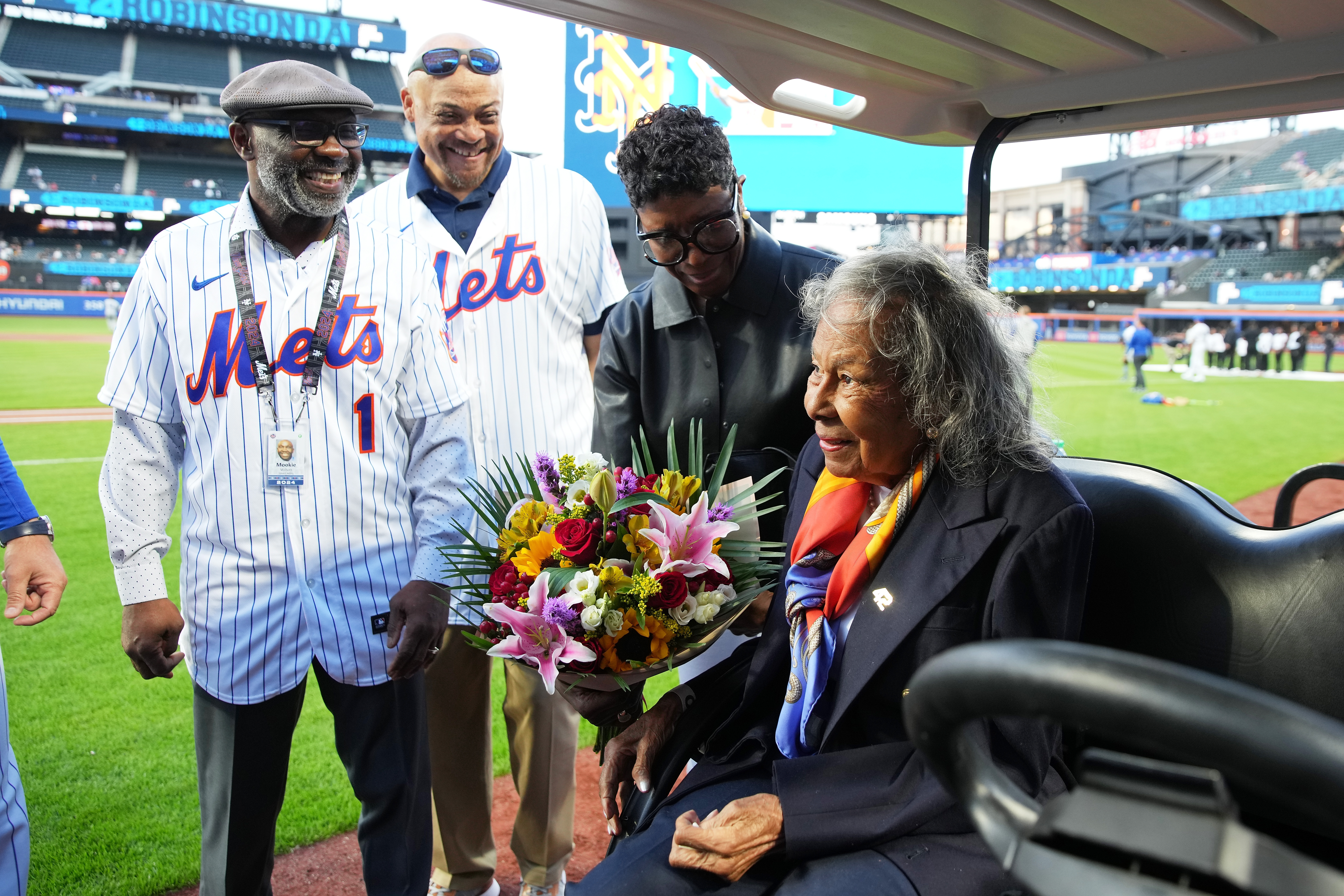
Over the next two weeks, we'll take a look at Phillies on the bubble -- players who may or not may not return in 2015 because of their contract situation or a desire by the team to move on.
Domonic Brown, left field
Age: 27
Contract: First arbitration year in 2015 (made $550,000 in 2014)
What, oh what, do the Phillies do with Domonic Brown?
Questions surround the Phils' offseason, and Brown's status with the team is one of the main issues to work around.
Whatever decision the team does ultimately make won't be easy. Yes, Brown is still just 27, but his relative youth doesn't ensure he will continue to grow. In fact, he hasn't really grown at all since first joining the Phillies in 2010.
MLB
Brown hit .235 with a .285 on-base percentage this season. He hit 10 home runs and drove in 63 runs in 144 games. Ugly. Weak production from a six-hole hitter, especially weak numbers from a leftfielder.
Brown also struggled defensively and made several gaffes on the basepaths. Defensive metrics do not tell a complete story, but Brown has been worth minus-30.8 runs defensively over the last two seasons, according to Fangraphs. That pretty much confirms what our eyes saw over that span.
General manager Ruben Amaro Jr. knows he must substantially upgrade the Phillies' offense. He has said as much leading into this offseason. The two clearest positions to boost are first base and left field. The Phillies owe their first baseman $60 million. They don't owe their leftfielder much at all.
Brown made $550,000 last season. The upcoming 2015 season will be his first arbitration year, and based off recent first-year arbitration cases for outfielders Brown is likely looking at a salary of between $1.25 million and $2 million.
The money is not a prohibitive factor for the Phillies. A gamble on his rebounding or figuring things out would be worth it for $1.5 million, especially if the Phils wise up and realize they are unlikely to contend in 2015 anyway.
But if the Phils are indeed committed to improving and trying to eke out a wild-card berth next year, they have to move on from Brown as an everyday starter. He is just too much of a liability in all three phases of the game, and at no point in 2014 did he show real, consistent signs of being an everyday player.
The Phillies have four different choices with Brown. They can trade him. They can demote him to the minors. They can move forward with him as an everyday leftfielder. Or they can relegate him to the bench or to a platoon role.
There are complications with each choice. If you trade Brown, you're selling low and are unlikely to receive much of substance in return.
If you demote him, you risk shattering his confidence. (Though at this point, what does that matter? Even if Brown is somewhat or fully confident right now, it hasn't translated to on-field success outside of his one productive six-week stretch in 2013.)
That six-week stretch in 2013 really may have ruined Brown. He famously finished May with 12 home runs and no walks, becoming the first player ever with double-digit homers in a month without a walk. And then he just kept swing-swing-swingin' away. From 2010 to 2012 as a part-time player with the Phils, Brown swung at 29.6 percent of pitches classified as out of the strike zone. In 2013 and 2014, that rate rose to 32.1 percent. The plate discipline that stood out from Brown when he was first promoted seemed to completely erode. It didn't matter when he was slugging like he was in May 2013, but we all knew that wouldn't last.
If you move forward with Brown as the everyday outfielder, you risk throwing away another season with a stale offense.
The fourth option, moving Brown to the bench, is the least troubling and probably the most deserved. If the Phillies can land Yasmany Tomas for left field or trade for a young bat that upgrades the lineup, there is no sense and no reason to start Brown more than once or twice a week.
For months, analysts have opined that the Phillies should be able to trade Brown this offseason for another change-of-scenery candidate. Not many names have been offered, though. I tossed out Dustin Ackley at mid-season. Ackley then had a solid second half, which probably erased whatever chance the Phillies had of dealing with the Mariners.
The problem is that change-of-scenery candidates are change-of-scenery candidates because they haven't had success. Rangers outfielder Michael Choice, for example, is 24 years old and comes with promise, but he hit .182 in 280 plate appearances last season. Jumping at the chance to trade for that?
Maybe another team talks itself into believing in a Brown turnaround. It would be solely based off his potential and minor-league success though, because aside from May 2013 when Brown ran into an assortment of middle-in pitches, his numbers and on-field play have inspired little confidence from talent evaluators.
Brown's failure to this point at the major league level shows why you cannot overrate prospects when it comes to trades. Practically every "untouchable" from the last five years has underwhelmed in The Show. The sample sizes aren't huge yet, but injuries or ineffectiveness have been apparent for Brown, Jurickson Profar, Oscar Taveras, Gregory Polanco, etc. The list really does go on and on. Think the Royals regret that Wil Myers for James Shields and Wade Davis trade right about now?
The guess here is the Phillies move on from Brown. Amaro and other Phillies officials have talked about outfield defense a lot over the last two years and that could be the deciding factor. If Brown provided sparkling D during his prolonged stretches of offensive nothingness, he'd have some value. But the skill set he offers just does not fit into the context of this team.


